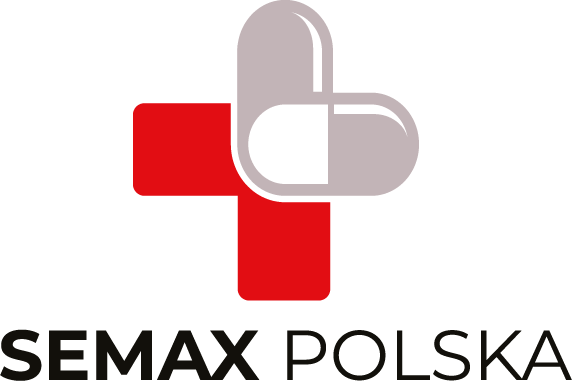
Depression - what helps? Effects of acetylcholine and gaba on the treatment of depression
What helps with depression? Learn about the effects of neurotransmitters on mental health.
The brain is a complex machine that functions using nerve connections that communicate through neurotransmitters. This allows the brain to transmit information, as well as send information to all parts of the body, including muscles or glands. Low levels of neurotransmitters can cause depression, anxiety attacks and memory disorders, among other things.
Table of contents
- How to deal with depression? Action of acetylcholine vs. alleviation of depression symptoms
- How to deal with depression? What role does gammaaminobutyric acid play in the fight against depression?
- What is gaba responsible for?
- How to increase γ-aminobutyric acid levels?
To date, more than 100 neurotransmitters have been discovered, and that's certainly not all of them yet. Each of them is responsible for a different area of the body's functioning. Some of the most popular are serotonin and dopamine. Their absence is often a factor in the occurrence of depressive states. However, are they the only ones responsible for well-being? In this article we take a closer look at the functions and properties of acetylcholine and gaba.
How to deal with depression? Action of acetylcholine vs. alleviation of depression symptoms
Acetylcholine is a neurotransmitter responsible for muscle function, regulation of memory, attention, sleep, cognitive function and mood. In addition, the substance plays an important role in controlling acute stress responses or memories, which can guide long-term behavioral patterns. Symptoms of acetylcholine deficiency these include:
- Negative memory bias and mood disruption,
- Inability to increase attention to external stimuli,
- Lack of cognitive flexibility,
- lower resistance to stress,
- The decline in learning through reward.
It is important that acetylcholine is not in short supply, but also in excess. Because cognitive fitness relative to acetylcholine levels breaks down in the shape of an inverted U. Which means that too little of it is just as dangerous as too much of it.
In general, the neurotransmitter is extremely important during the processes of learning, remembering, as well as maintaining mental balance. Depressed patients, especially those who experience increased distraction and learning problems, are advised to increase their acetylcholine levels through, among other things, a diet rich in choline, a substance that, along with acetic acid, enables acetylcholine synthesis.
According to the recommendations, each adult should consume about 425 mg of choline, or almost half a gram a day! It can be found in offal, egg yolks or animal products. Despite its availability in food, it is difficult to supplement our daily requirement.
A good way to treat depression may be to build a balance between dopamine and acetylcholine levels. A synthetic agent that has been shown to stimulate the formation of these two neurotransmitters is noopept. It is based on an endogenous peptide - cycloproliloglycine. It exhibits neuroprotective effects, helping to increase the levels of these two neurotransmitters.
How to deal with depression? What role does gammaaminobutyric acid play in the fight against depression?
Evidence is abundant that reducing γ-aminobutyric acid (GABA) levels in the central nervous system in patients with major depressive disorder. And research on the subject has been conducted since at least 1980. Observations by magnetic resonance spectroscopy showed that there were lower concentrations of gaba in the cerebrospinal fluid of people who are depressed. If major depression is associated with low levels of this substance, then the conclusion follows - effective treatment of depression should seek to normalize gaba levels.
What is gaba responsible for?
Gamma-aminobutyric acid is one of the main inhibitors of neurotransmitters in the central nervous system - this means that it inhibits the uptake of neurotransmitters by synapses, leading to an increase in their number in the spaces between them. This enables better neurotransmission, and thus leads to better stimulation of cells that have been "engulfed" by depression. In addition, gaba influences better sleep, alleviating insomnia and has an anti-anxiety effect.
How to increase γ-aminobutyric acid levels?
In light of the numerous studies examining the substance's effect on fighting depression, one should aim to increase or decrease its levels (particularly in the plasma and brain areas). As with acetylcholine, both excess and deficiency will have negative consequences.
Symptoms of gama deficiency are increased nervous agitation, insomnia, hypersensitivity to stimuli, anxiety disorders, emotional instability or problems with concentration and memory.
In turn symptoms of gama excess are problems with concentration, apathy, reduced muscle tone, reduced heart rate and respiration rate, slowed thinking and reactions.
The substance comes in the form of supplements, and some online sources state that an increase in acid levels can occur as a result of meditation or yoga. Another recommended way is to take the synthetic peptide bpc-157. In addition to its salutary effect on depression, the preparation also carries many more benefits, including.
- Regenerative effect for active people,
- Accelerating wound healing,
- Relieving discomfort in stomach ulcers,
- anti-inflammatory effects.
If you are struggling with depression, conventional treatments for depression, such as psychotherapy and pharmacotherapy, should not be forgotten. Visiting a good psychiatrist and adjusting the course of treatment is one of the most important steps you should take. Wanting to further aid treatment, it is worthwhile to change your diet, introduce exercise and use the synthetic peptide bpc 157 or noopept.



